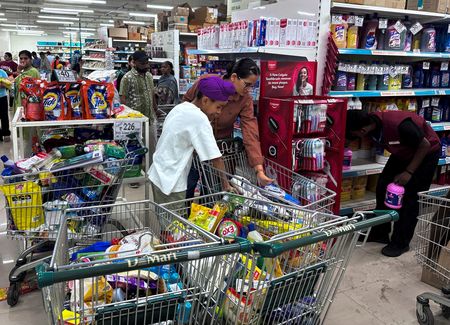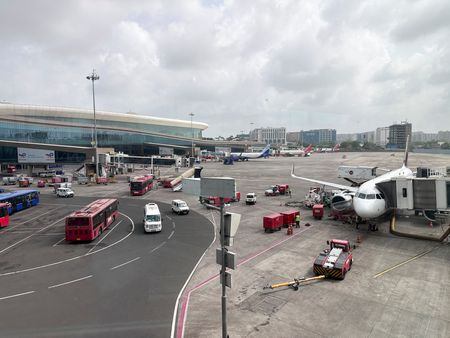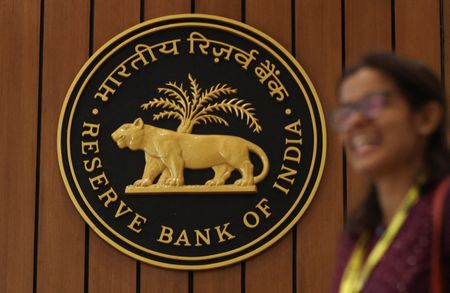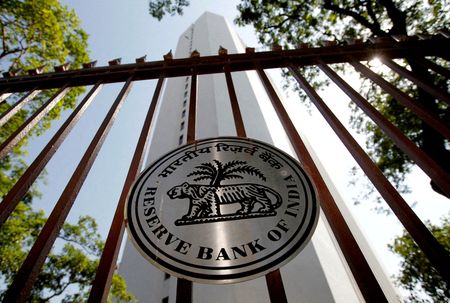(Reuters) -India’s goods and services tax reforms should help lower retail prices and support consumption growth, the Reserve Bank of India said in its monthly bulletin released late on Wednesday.
Changes in tax rates kicked in this month, lowering prices of a number of everyday items ranging from toothpastes to air conditioners.
The GST reforms should “progressively result in a sustained positive impact through significant gains in ease of doing business, lower retail prices and strengthening of consumption growth drivers”, the bulletin said.
Higher seasonal agricultural sowing is also expected to keep food prices in check, it said.
The comments come ahead of a crucial monetary policy review on October 1, the first since punitive tariffs imposed by the U.S. on India were enforced. While a majority of economists are expecting a status quo in rates, some, including Barclays and Capital Economics, are calling for a resumption of rate cuts.
The RBI has cut the policy repo rate by 100 basis points so far in 2025, but held rates steady at its August meeting.
The bulletin struck an optimistic note on growth despite pressure from higher tariffs on goods exports and disruptions to India’s IT sector due to higher fees.
“While the imposition of high U.S. import tariff brought in some headwinds to the domestic macro outlook, the developments since then have underscored the resilience of the economy,” the bulletin said, pointing to stronger-than-expected GDP growth of 7.8% and an upgrade in the country’s sovereign rating by S&P.
“The growth outlook for H2 is one of optimism. Healthy corporate balance sheets and the focus on structural reforms by the government are the bright spots of the economy,” the bulletin said.
Transmission of past rate cuts, coupled with income-tax relief, set the stage for a “sustained pick-up in consumption demand” in the second half of the year and “potentially for a virtuous cycle of higher investments and stronger growth impulses, overcoming persistent global uncertainties”, it said.
(Reporting by Yagnoseni Das in Bengaluru and Ira Dugal in Mumbai; Editing by Shilpi Majumdar)










